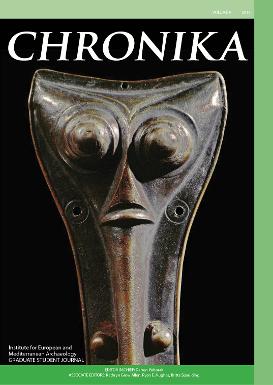The Graduate Visual Culture Association of Queen’s University presents CONTEXT AND MEANING XV

Formal museum etiquette and the discipline of art history have long instilled in their audiences a compulsion to look but not touch. How might we as historians and theorists revaluate the way in which we examine art in order to move beyond solely a consideration of the visual? Can methodologies be bolstered or problematized when we address and approach art with varying sensory engagements beyond the visual? How can works of art stimulate the senses, and how have the senses influenced the creation and interpretation of historical or contemporary objects? What can the museum experience tell us about curatorial and display techniques that move beyond the visual to create narratives and illuminate histories of objects and experiences? More recently, the realm of the digital humanities and emerging technology has facilitated the re-creation of art objects and architectural settings in virtual environments. What effects might this emerging virtual frontier have on how historians understand three-dimensional objects without their tactile qualities, and the phenomenological impact of inserting ourselves into these virtual worlds?
We are pleased to announce the fifteenth annual Context & Meaning Graduate Student Conference, taking place at Queen’s University on Friday, January 29th and Saturday, January 30th, 2016. We are seeking papers that address this year’s theme, “Sensing Matter(s),” with the aim of critically examining and challenging the dominance of visuality in visual culture. To that end we invite graduate students to submit proposals for papers that address the engagement of haptic, sensory, or phenomenological experience in the treatment or analysis of visual and material culture. We are interested in exploring this theme in a variety of contexts and strongly encourage interdisciplinary approaches and related fields that may move beyond the purely visual (i.e. performative art pieces). Possible topics may include but are not limited to:
– Depictions of the five senses in art – music, movement, food, and so on
– Material and object-centered approaches: tactility and the haptic
– New museological and curatorial approaches beyond the hanging frame
– Installation and performance art
– Phenomenology and synaesthesia – the body as sensory apparatus
– Technical art history and conservation practices
– Virtuality and the digital humanities
– Extrasensory experiences of artists and artworks (e.g. miraculous objects)
This conference is open to both historical and contemporary topics, and may relate to things considered “fine art” as well as those encountered everyday. Submissions are welcome from current graduate students, as well as those who have completed their graduate studies within the last year, from across Canada and the United States conducting research in all disciplines that engage with visual and material culture. In light of our theme, we seek to assemble a diverse group of scholars in order to foster interdisciplinary discussions. Each presenter will be allotted twenty minutes to deliver her or his papers, followed by a ten- minute discussion period.
If you are interested in speaking or performing at Context and Meaning XIV, please email an abstract of no more than 300 words with the title of the paper, along with a separate document that includes a brief letter of introduction, to gvca@queensu.ca. Abstracts should be submitted by Friday, November 6, 2015. As a blind panel will review all submissions, please ensure that your name and the title of your paper are included in your letter of introduction, but that your name and other identifying marks are left off the abstract.
We thank all that apply and will only contact those who have been accepted. Accepted applications will be notified by December 5th, 2015.
Deadline for submission: November 6, 2015
If you have any questions concerning the conference, please contact us at gvca@queensu.ca.
Graduate Student Conference Committee
Graduate Visual Culture Association
Department of Art, Ontario Hall
Queen’s University!
Kingston, ON
K7L 3N6! Canada














